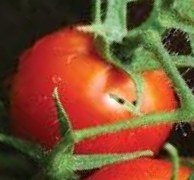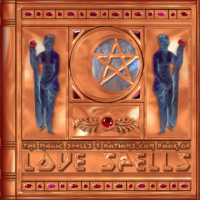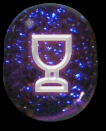Tomato
Belonging to the Solanums the Tomato (Lycopersicum) is a plant of Mexican origin. Its brilliant fruit was first known as Mala oethiopica, or the Apples of the Moors, and bearing the Italian designation Pomi dei Mori. This name was presently corrupted in the French to Pommes d'amour; and thence in English to the epithet Love Apples
Added Mar 4, 2011
| 9,911 Reads
Though only of recent introduction as a common vegetable in this country, and though grown chiefly under glass for the table in England, yet the Tomato is so abundantly imported, and so extensively used by all classes now-a-days throughout the British Isles that it may fairly take consideration for whatever claims it can advance as a curative Simple. Imported early in the present century from South America it remained for a while an exclusive luxury produced for the rich like pine apples and melons. But gradually since then the Tomato has steadily acquired an increasing popularity, and now large crops of the profitable fruit are brought from Bordeaux and the Channel Islands, to meet the demands of our English markets. Much of the favour which has become attached to this ruddy, polished, attractive-looking fruit is due to a widespread impression that it is good for the liver, and a preventive of biliousness. Nevertheless, rumours have also gone abroad that habitual Tomato-eaters are especially liable to cancerous disease in this, or that organ. Belonging to the Solanums the Tomato (Lycopersicum) is a plant of Mexican origin. Its brilliant fruit was first known as Mala oethiopica, or the Apples of the Moors, and bearing the Italian designation Pomi dei Mori. This name was presently corrupted in the French to Pommes d'amour; and thence in English to the epithet Love Apples, a perversion which shows by what curious methods primary names may become incongruously changed. They are also called Gold Apples from their bright yellow colour before getting ripe. The term Lycopersicum signifies a "wolf's peach," because some parts of the plant are thought to excite animal passions. The best fruit is supposed to grow within sight, or smell of the sea. It needs plenty of sunlight and heat. The quicker it is produced the fewer will be the seeds discoverable in its pulp. Green when young, Tomatoes acquire a bright yellow hue before reaching maturity, and when ripe they are smooth, shining, furrowed, and of a handsome red. Chemically this Love Apple contains citric and malic acids: and it further possesses oxalic acid, or oxalate of potash, in common with the Sorrel of our fields, and the Rhubarb of our kitchen gardens. On which account each of this vegetable triad is ill suited for gouty constitutions disposed to the formation of irritating oxalate of lime in the blood. With such persons a single indulgence in Tomatoes, particularly when eaten raw, may provoke a sharp attack of gout. Otherwise there are special reasons for supposing the Tomato to be a wholesome fruit of remarkable purifying value. Dr. King Chambers classifies it among remedies against scurvy, telling us that Tomatoes mixed with brown bread make a capital sauce for costive persons. And the fruit owns a singular property in connection with diseases of plants, suggesting its probable worth as protective against bacterial germs, and microbes of disease in our bodies when it is taken as food, or medicinally. If a Tomato shrub be uprooted at the end of the summer, and allowed to wither on the bough of a fruit tree, or if it be burnt beneath the fruit tree, it will not only kill any blight which may be present, but will also preserve the tree against any future invasion by blight. The hostility thus evinced by the plant to low organisms is due to the presence of sulphur, which the Tomato shrub largely contains, and which is rendered up in an active state by decay, or by burning. Now remembering that digestion likewise splits up the Tomato into its chemical constituents, and releases its sulphur within us, we may fairly assume that persons [570] who eat Tomatoes habitually are likely to have a particular immunity from bacterial and putrefactive diseases. Wherefore it is altogether improbable that Tomatoes will engender cancer, which is essentially a disease of vitiated blood, and of degenerate cell tissue. Possibly the old exploded doctrine of signatures may have suggested, or started this accusation against the maligned, though unguarded Tomato: for it cannot be denied the guileless fruit bears a nodulated tumour-like appearance, whilst showing, when cut, an aspect of red raw morbid fleshy structure strangely resembling cancerous disease. Vegetarians who eat Tomatoes constantly and freely claim that cancer is a disease almost unknown among their ranks; but an Italian doctor writing from Rome gives it as the experience of himself and his medical brethren that cancer is as common in Italy and Sicily among vegetarians as with mixed eaters. Most of our American cousins, who are the enterprising fathers of this medicinal fruit, persuade themselves that they are never in perfect health except during the Tomato season. And with us the ruddy Solanum has obtained a wide popularity not simply at table as a tasty cooling sallet, or an appetising stew, but essentially as a supposed antibilious purifier of the blood. When uncooked it contains a notable quantity of Solanin, and it would be dangerous to let animals drink water in which the plant had been boiled. The Staff of the Cancer Hospital at Brompton have emphatically declared "they see no ground whatever for supposing that the eating of Tomatoes predisposes to cancer." Nevertheless some country people in the remote American States attribute cancer to an excessively free use of the wild uncultivated tomato as food. The first mention of this fruit by the London Horticultural Society occurred in 1818. Chemically in addition to the acids already named the Tomato contains a volatile oil, a brown resinous extractive matter very fragrant, a vegeto-mineral matter, muco-saccharin, some salts, and in all probability an alkaloid. The whole plant smells unpleasantly, and its juices when subjected to heat by the action of fire emit a vapour so powerful as to provoke vertigo and vomiting. The specific principles furnished by the Tomato will, when concentrated, produce, if taken medicinally, effects very similar to those brought about by taking mercurial salts, viz., an ulcerative-state of the mouth, with a profuse flow of saliva, and with excessive stimulation of the liver: peevishness also on the following day, with a depressing backache in men, suggesting paralysis, and with a profuse fluor albus in women. When given in moderation as food, or as physic, the fruit will remedy this chain of symptoms. By reason of its efficacy in promoting an increased flow of bile if judiciously taken, the Tomato bears the name in America of Vegetable Mercury, and it has almost superseded calomel there as a biliary medicinal provocative. Dr. Bennett declares the Tomato to be the most useful and the least harmful of all known medicines for correcting derangements of the liver. He prepares a chemical extract of the fruit and plant which will, he feels assured, depose calomel for the future. Across the Atlantic an officinal tincture is made from the Tomato for curative purposes by treating the apples, and the bruised fresh plant with alcohol, and letting this stand for eight days before it is filtered and strained. A teaspoonful of the tincture is a sufficient dose with one or two tablespoonfuls of cold water, three times in the day. The fluid extract made from the plant is curative of any ulcerative soreness within the mouth, such as nurses' sore mouth, or canker. It should be given internally, and applied locally to the sore parts. Spaniards and Italians eat Tomatoes with pepper and oil. We take them as a salad, or stewed with butter, after slicing and stuffing them with bread crumb, and a spice of garlic. The green Tomato makes a good pickle, and in its unripe state is esteemed an excellent sauce with rich roast pork, or goose. The fruit when cooked no longer exercises active medicinal effects, as its volatile principles have now become dispelled through heat. By the late Mr. Shirley Hibberd, who was a good naturalist, it was asserted with seeming veracity that the cannibal inhabitants of the Fiji Islands hold in high repute a native Tomato which is named by them the Solanum anthropophagorutm, and which they eat, par excellence, with "Cold Missionary." Nearer home a worthy dame has been known with pious aspirations to enquire at the stationer's for "Foxe's book of To-Martyrs." "Chops and Tomato sauce" were ordered from Mrs. Bardell, in Pickwick's famous letter. "Gentlemen!" says Serjeant Buzfuz, in his address to the jury, "What does this mean?" But he missed a point in not going on to add--"I need not tell you, gentlemen, the popular name for the Tomato is love apple! Is it not manifest, therefore, what the base deceiver intended?" "A cucumber in early spring Might please a sated Caesar, Rapture asparagus can bring, And dearer still green peas are: Oh! far and wide, where mushrooms hide, I'll search, as wide and far too For watercress; but all their pride Must stoop to thee,--Tomato!"
Added Mar 4, 2011
| 9,911 Reads
Share The Magic ...
The GoE MONEY!!! Course - A Course In Real MONEY MAGIC!
|





















